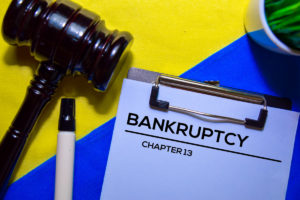Restructuring Mortgage and Property Tax Debt in Chapter 13
 Though medical expenses are cited as the most common cause of personal bankruptcy filings, it’s common for individuals seeking protection in Chapter 7 or 13 to be behind in mortgage payments or property tax obligations. As a general rule, Chapter 7 won’t allow you to permanently discharge those types of debts. You can exempt certain types of property from Chapter 7, but there’s a limit (and an extremely low one) to the amount of home equity you can protect in Chapter 7. You can, however, use Chapter 13 to restructure mortgage and property tax obligations.
Though medical expenses are cited as the most common cause of personal bankruptcy filings, it’s common for individuals seeking protection in Chapter 7 or 13 to be behind in mortgage payments or property tax obligations. As a general rule, Chapter 7 won’t allow you to permanently discharge those types of debts. You can exempt certain types of property from Chapter 7, but there’s a limit (and an extremely low one) to the amount of home equity you can protect in Chapter 7. You can, however, use Chapter 13 to restructure mortgage and property tax obligations.
With Chapter 13 reorganization, you’ll have three to five years of protection from creditors under the provisions of the automatic stay. That may be enough time for you to repay property tax arrearages in full, but usually it’s not sufficient time to pay off a mortgage. However, as part of your Chapter 13 filing, you may be able to negotiate new terms, which can include waiver of late fees and penalties, an extended term to your loan, or even a reduced interest rate. Alternatively, you can use Chapter 13 to pay off all arrearages so that you are caught up when the proceeding is complete.
It’s critical, though, that you avoid incurring any new debt after you file for Chapter 13. Ideally, when your Chapter 13 is complete, you’ll have a significantly lower debt load, which will make it easier to meet your mortgage and property tax obligations.
Contact Heath, TX Bankruptcy Attorney Carrie Weir
At the Law Office of Carrie L. Weir, I provide a free initial consultation to anyone with questions or concerns regarding a personal bankruptcy filing. Contact my office by e-mail or call me at 972-772-3083 to schedule a private consultation. With offices in Rockwall, Texas, I represent clients in Heath, Greenville, Lavon, Wylie, Mesquite and Rowlett.








Speak Your Mind